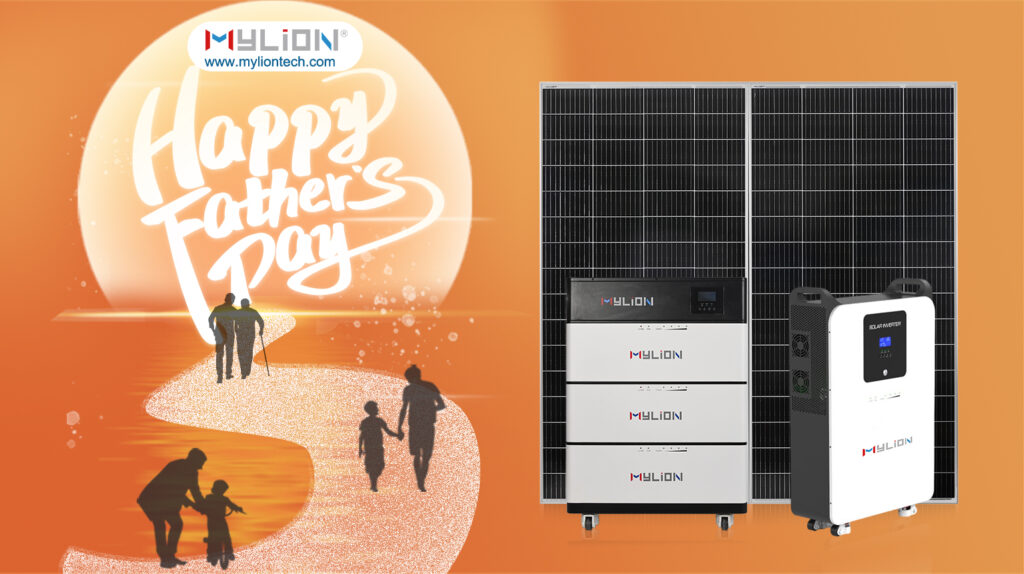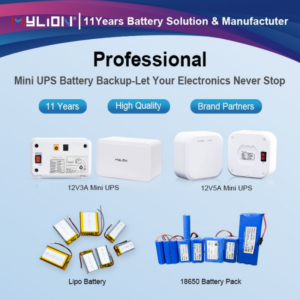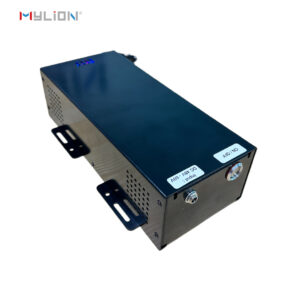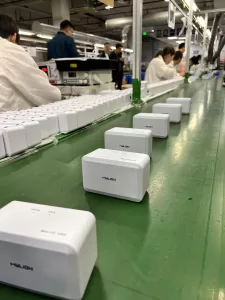With the increasing demands for sustainable energy all over the world, enthusiasm for solar panels is also expanding at a rapid rate. Making use of the sun’s energy to power your whole house can be a huge green benefit (think about the amount of energy you save!). It’s an efficient use of resources that could be utilized for a long time each day.
But, when it comes to the subject of solar panels are you aware of the materials they’re made from and how they function? Solar systems are made up of solar panels (or photovoltaic (PV) panels) along with solar Inverters (super vital) solar inverter (super crucial) and racks to ensure all is in place. They may also include batteries as well as an electric meter depending on the specific system. The power requirement will determine the quantity and type of panels that are used in the system. Due to the significance and importance solar panels can be so we’ll give a brief description on the solar inverters and their roles and what to look for in a quality solar inverter because of their importance. If you have any concerns following this article, don’t hesitate contact the MYLION Solutions on +8615601782817(WA).
Inverters are devices? It converts solar energy into electricity?
The Solar inverter is one of the main elements of the solar power system. Inverters convert sunlight generated through solar panels to a electrical form that is able to be utilized in your home or office.

What does an inverter, which is powered by solar power?
The solar inverter works in taking direct current (also called DC output) of solar panels and converting it into an alternating 120V/240V AC output. AC is not DC that is the power source for appliances within your home. This is why the solar Inverter must alter its DC output that is captured by the solar panels.
If you want to get more specific, it is claimed that sunlight shines upon solar panels (or photovoltaic (PV) cells) made up of layers of semiconductors made up of gallium arsenide as well as crystalline silicon. They’re made up of positive and negative layers that are joined by an interconnection. In the case of sunlight the semiconductor layers absorb light and then transfer their energy to the solar cells. The energy is then transferred to the cell, causing electrons to move out of their positions. They pass through the positive and negative layers, generating an electric current, known by the term direct current (DC) as the energy is created and stored in a device to be used later or directly transferred via an inverter (this depends on the type of device you have).
When energy is transmitted to the Inverter it’s in DC format, however your home requires AC. The Inverter receives the energy and runs it through a transformer, resulting in output that is AC output. The Inverter is a trick to fool your transformer to believe that it is AC. DC can appear to be AC if it is made to behave like AC. The Inverter will then run its DC through multiple transducers that turn off and on extremely quickly. They also feed two distinct components to the transformer.
Inverters for solar energy that are of different kinds
If you’ve understood the meaning of a solar-powered inverter and how it functions and works, let’s take a look at the different kinds of inverters. There are five kinds of solar inverters that have various advantages
1. Battery Inverters
Inverters for batteries are ideal for those who want to upgrade the battery for your solar system. You can then separate it from solar panels and then put it through an inverter that is different. Inverters convert the power of your battery into a voltage of the 230V AC before connecting it to the switching board (instead of relying on grid electricity) whenever you can.
2. Central Inverters
An inverter that has a central circuit is huge. It is used in systems that need thousands of Kilowatts (or sometimes megawatts) of power. They’re not suited to homes and resemble massive steel cabinets with each ‘wardrobe’ able to accommodate around 500kW of power. Commercial firms typically employ them for large-scale projects and large-scale solar farms, especially for use in utility applications.
3. Hybrid Inverters
Hybrid Inverters, also known as multi-mode inverters are uncommon in Australia and permit you to connect the batteries with solar power. They communicate with the batteries via DC coupling (when each of the batteries as well as the solar system utilize one Inverter while they use the DC generated by solar panels recharges the batteries with an DC charges). The electronics control the discharge and charging caused by the storm.
4. Microinverters
The name suggests that microinverters are very small (the size of the size of a book!) The ratio of solar panels and microinverters may be as high as 1:1. One of the benefits of microinverters as well as other microinverters is that they are able to optimize every solar panel in a an unique manner that delivers the most incredible energy (especially when it is shaded).
5. String inverters
And lastly there are also string inverters. Inverters made from string are the most frequently used Inverter in houses. In most cases, there is one string of inverters per solar panel. They are also referred to as string inverters’ since they are attached to a set of solar panel. They are attached to them.
Is it the most efficient inverter to use for Solar?

If you’re considering the different inverter models size, brands, and models There are certain things to look for when searching for the best quality solar-powered inverters. They include:
Are you aware if this Inverter powered by solar can be CEC approved?
The Clean Energy Regulator has a list of approved inverters by the CEC. It is crucial to confirm. Being CEC certified means that it is approved and compatible with Australian conditions, in line to the relevant Australian Standards in addition to being of high quality. It’s also worth looking into the background of the company, its history and the amount of time they’ve been operating. Are they considered to be experts in their field and are they specialists in another area?
What size solar Inverter do you think is the most efficient?
This is a topic that which many people want to know the answer to. We have the best solution to provide the most precise answer: choose an inverter that is capable of handling the entire power solar power systems produce. For example, if you are looking for a system which produces 3kW, then you’ll require 3kW of solar panels as well as an inverter for 3kW. There are some exceptions to this, but we’ll not go into these here (and they can be extremely complicated! ).
Can it be weatherproofed for the inverter that generates solar power?
This is an important aspect to be considered when you are deciding in which your Inverter will be placed. It is possible that it’s weatherproof. This allows you to be more flexible when it comes to the location. But, you may have to purchase a weatherproofing cage to secure it (but it’ll cost more). The general rule is, the better secured the inverter that you use for solar, the longer it’ll be able to last, and also the better it’ll be. Review the details of the solar inverters that you are interested in, and then speak with the solar installer to find out where they plan to install the inverter.
This is the display for solar inverter
Take a look at the solar Inverter’s display to see the information available to be viewed directly on your Inverter, or when you are able to monitor the Inverter remotely (for instance, using the console that is located within the room you reside in). The data available on the display includes:
How long has it been generating electricity?
The amount of Kilowatts (kW) this system is currently producing
The amount of electricity (kilowatt minutes) per day that the system produces
It is the amount of energy (kilowatt per hour) this system is able to provide has generated since the system was first installed.
There are remote options available for computers or mobile devices. The choice is based of your spending budget, as well as the requirements concerning the display.
Take the time to study the specifications for solar inverters attentively. They are rated by DC inputs and AC output’s. Therefore, make sure that you choose one that is appropriate for your needs.
Solar Inverter Warranty
This is an important point! Inverters linked to grids are typically between 10 and 20 years in addition, (realistically) the odds are anticipated that they’ll last for 10 years at minimum. The inverter you decide to purchase a warranty usually will last between 5 and 12 years. There are also extensions with an additional cost. Check out the model you are interested in as well as its specifications and decide if you need a longer warranty than the one you have – bear an eye on the fact that the more extensive the warranty more secure you will receive.
Do I have the ability to increase the capacity of my solar inverter?
It is crucial when you are planning to expand your solar array soon. Discussing with an electrician who works with solar panels is recommended because the amount you require will depend on numerous factors (too many to be listed here! ).
Are you preparing on joining our grid?
If you intend connecting to the grid (where the energy produced by your solar panels is transferred to your house or to the grid that provides the primary source of energy) Be sure to examine solar inverters that boast an efficiency of at least 95 percent (transformer-based) (transformer-based) or 95 percent (transformerless). This is the efficiency standard for the majority of high-quality inverter models.
How much is it? price I must be able to
This is the most difficult issue, so we are unable to offer a specific solution. It’s all about the needs of your requirements about the amount you’ll be expected to pay and prices vary from $800.00 up to $5,000.00 and beyond. We don’t purchase the most affordable option. They will last for a short duration. In the future, you’ll need to purchase a new one before you’re ready to purchase the most cost-effective alternative.
Your qualified solar inverter supplier
If you have any questions or concerns, contact MyLION Solutions by calling +8615601782817(WA) (WA) or Book Online today. We’re experts in all your electrical needs. So contact us today!






